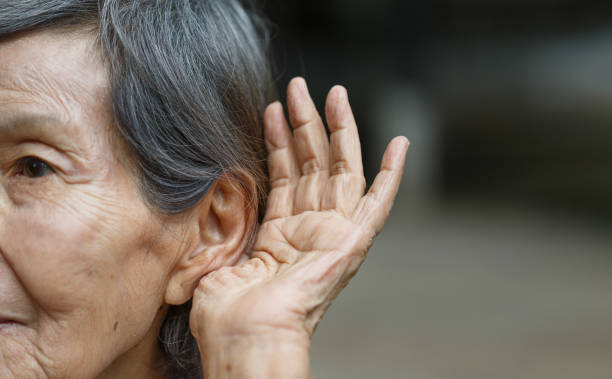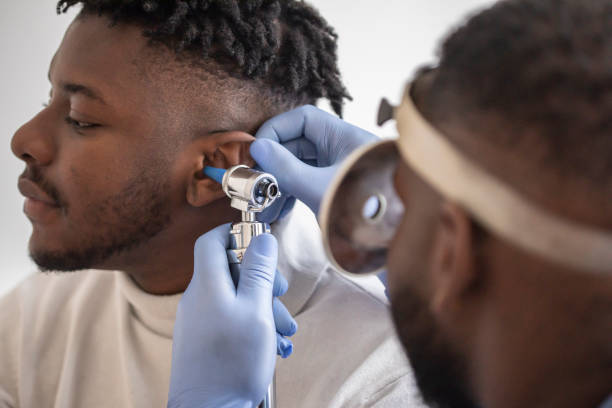Alternative Treatments
How to Naturally Reverse Hearing Loss
Hearing loss, a common ailment that affects millions of people throughout the world, can have a significant influence on one’s quality of life, communication skills, and general health. While traditional therapies such as hearing aids and cochlear implants are beneficial, many people seek alternative ways to hearing loss, particularly those who prefer natural cures. This article delves into the fascinating world of natural therapies for reverse hearing loss, covering a variety of approaches such as dietary changes, lifestyle changes, supplements, and auditory exercises. Individuals who understand the probable mechanisms underpinning natural approaches to hearing restoration can empower themselves to make proactive efforts to preserve and improve their auditory health. From harnessing the power of antioxidant-rich foods to incorporating auditory stimulation techniques, this investigation seeks to shed light on holistic ways that may supplement established treatments, providing hope for better hearing results and a brighter aural future.

Understanding Hearing Loss
Hearing loss affects a large number of people worldwide. It can be caused by a variety of reasons, ranging from moderate to severe. In this section of this article, we will look at the many forms, causes, symptoms, and diagnoses of hearing loss.
Types of Hearing Loss
There are two forms of hearing loss: conductive and sensorineural. Conductive hearing loss results from a condition in the middle ear that prevents sound from reaching the inner ear. Sensorineural hearing loss, on the other hand, results from injury to the inner ear or auditory nerve.
The most prevalent type of sensorineural hearing loss is due to aging. It is caused by normal aging and impairs the ability to perceive high-frequency noises. Tinnitus, a ringing or buzzing sound in the ears, is another typical sign of age-related hearing loss.
Causes of Hearing Loss
Genetics, loud noise exposure, infections, drugs, and head trauma are all potential causes of hearing loss. These conditions can also harm inner ear hair cells, which translate sound waves into electrical signals, resulting in hearing loss.
Symptoms and Diagnosis
The symptoms of hearing loss differ based on the type and degree of the condition. Common symptoms include difficulties hearing, ringing in the ears, and a sensation of fullness in the ears.
An audiologist will conduct a hearing test to determine whether you have hearing loss. This exam assesses the ability to hear various frequencies and levels of sound. If hearing loss is identified, more testing may be required to evaluate the cause and severity of the problem.
In conclusion, understanding the many types, causes, symptoms, and diagnosis of hearing loss is critical for managing and treating the illness. Individuals can lower their risk of hearing loss and enhance their overall quality of life by consulting with an audiologist and implementing preventive steps.

Natural Treatment Strategies
Hearing loss can be a difficult disease to manage, and it can be irritating to have to rely on hearing aids or other medical treatments. However, some natural treatment options may be able to reverse or reduce the progression of hearing loss.
Diet and Supplements
A nutritious diet can help keep your ears healthy. According to some research, a diet rich in fruits, vegetables, and nuts may assist enhance blood flow to the ears, resulting in greater hearing. Certain vitamins and supplements may also prove effective. For example, omega-3 fatty acids present in fish oil have been demonstrated to reduce inflammation and improve blood flow, which can aid in the prevention of hearing loss. Magnesium and folic acid are thought to aid prevent hearing loss.
Lifestyle Changes
Certain lifestyle changes can also help prevent or reverse hearing loss. For example, stopping smoking can improve circulation and lessen ear inflammation. Furthermore, frequent exercise can increase blood circulation throughout the body, including the ears. Avoiding loud noises and wearing ear protection as needed can also assist in preventing further ear injury.
Home Remedies
There are various home remedies that may be useful in reversing hearing loss. For example, drops produced from natural components such as garlic or olive oil may assist in removing extra ear wax, which can lead to hearing loss. Additionally, some patients find that applying a warm compress to their ears improves circulation and reduces irritation.
It is crucial to remember that natural treatment options may not be effective for everyone and should not be used as a replacement for medical treatment. However, including these tactics in a comprehensive therapy strategy may aid in improving hearing and preventing further damage to the ears.

Scientific Advances in Hearing Restoration
Hair Cell Regeneration
This is a promising topic of research in hearing restoration. Hair cells translate sound waves into electrical impulses that the brain interprets as sound. Unfortunately, these cells do not renew normally if lost or injured, resulting in persistent hearing loss. However, current research suggests that it may be able to stimulate progenitor cells in the inner ear to produce new hair cells.
Harvard Medical School researchers reported developing a drug-like mixture of several chemicals that successfully regenerated hair cells in a mouse model by reprogramming a variety of genetic pathways in the inner ear. The study found that the cocktail of chemicals stimulated the development of new hair cell-like cells in adult mice, which eventually developed into fully functional hair cells. While this research is still in its early stages, it shows promise for future clinical trials and regenerative medicine.
Gene Therapy and Medications
Gene therapy and medicines are another promising field of research for hearing restoration. Scientists are investigating the use of tiny chemicals to target progenitor cells in the inner ear, which could assist in repairing hearing loss caused by some of the most prevalent causes, such as age-related hearing loss.
Frequency Therapeutics, a biotechnology business, is attempting to reverse hearing loss with a novel type of regenerative therapy. The company utilizes small compounds to program progenitor cells, which are descendants of stem cells in the inner ear, to produce the microscopic hair cells that allow us to hear. The company’s medication candidate promotes the proliferation of hair cells in the inner ear, potentially improving hearing in people with hearing loss.
While these scientific developments in hearing restoration are exciting, it is vital to recognize that they are still in their early stages of research. Clinical trials and research are required to determine the safety and efficacy of these medicines, which may take some time before they are available to the general public. However, these advancements provide hope for those suffering from hearing loss and may one day lead to new treatments that are more successful and less intrusive than present ones.

Prevention and Long-Term Care
Protecting Against Noise
Preventing hearing loss is far easier than reversing it. Excessive noise is one of the most common causes of hearing loss. As a result, protecting your ears from loud noises should be your number one concern. You can wear earplugs, noise-canceling headphones, or just reduce the level on your devices.
The National Institute on Deafness and Other Communication Disorders (NIDCD) suggests the following hearing-protection measures:
- When you are exposed to loud noises, wear earplugs or protective earmuffs.
- Take pauses from noisy environments.
- Turn the volume down on your devices.
- Use noise-canceling headphones.
Regular Check-Ups and Monitoring
Regular visits to an otolaryngologist can help detect hearing loss early and prevent it from progressing. An otolaryngologist can also suggest appropriate treatment choices based on the severity of the hearing loss.
It is also critical to frequently assess your hearing. If you detect any changes in your hearing, such as sudden hearing loss or difficulties comprehending speech, get medical assistance right once.
Furthermore, staying in good overall health might help avoid hearing loss. This includes obtaining regular exercise, eating a nutritious diet, and refraining from smoking and binge drinking.
To summarize, protecting your ears from loud noises and scheduling regular check-ups with an otolaryngologist will help avoid hearing loss. It is also critical to frequently check your hearing and maintain good general health.
Conclusion
To summarize, the effort to naturally reverse hearing loss involves a wide range of techniques aiming at improving auditory health and function. While scientific evidence on the efficacy of natural therapies in restoring hearing is scarce, anecdotal reports and growing studies point to interesting areas for investigation. Individuals have a plethora of options to consider in their quest for better hearing, ranging from dietary changes that emphasize antioxidant-rich foods to adopting auditory workouts and lifestyle changes. While natural medicines may not provide assured outcomes for everyone, they can supplement conventional treatments and improve general well-being. As research in this field advances, individuals are urged to collaborate closely with healthcare providers to develop holistic treatments that are tailored to their specific needs and preferences. Individuals can improve their aural health and live a more vibrant and connected life by adopting a proactive mentality and adding natural therapies into their daily lives.
Trusted Health, Wellness, and Medical advice for your well-being


